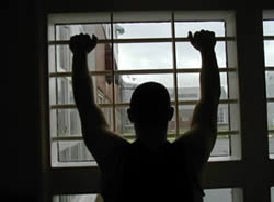Plea for Christian compassion in law courts
 Adopting the principles of Christian compassion, already used in the British Family Courts system, for the Law Courts, is an effective alternative to building more prisons, says Norfolk Christian Family Panel Magistrate John Myhill (right).
“These principles are adapted from those already functioning in our Family Courts. Ultimately these principles are based on Christian compassion. Their application would be an effective alternative to building more prisons,” said John, a Quaker and part of Norfolk and Waveney Churches Together.
These principles include:
Mentors should be appointed at the start of proceedings, for both accused and victim. (These would provide reports similar to those supplied by CAFCASS in Family Proceedings).
Significant Harm: ill treatment or impairment of health or development including impairment of seeing or hearing the ill treatment of another, should be avoided, both in the court and in the treatment that follows. The objective is to enhance the physical, intellectual, emotional and social development of the accused as well as of the victim.
 Community Responsibility: Community Responsibility: allowing each local community to control offenders in ways they see fit, as long as this is within human rights legislation. This principle would encourage local autonomy. People would be clear that if they offend in a locality, their rehabilitation would be arranged by local people.
No Sentence: bringing matters to court makes them public. Everyone should be able to know what changes have been agreed in court by parties in dispute, and what professional support has been made available. But the magistrates, or judge, should only force the parties involved to follow a certain course of action, if they are unable to agree a course of action between themselves. Interference, by evoking law, should be the last, not the first resort in conflict resolution. The person accused of a crime is in conflict with his/her local community.
Good Enough Behaviour: the court should not attempt to enforce politically correct or model behaviour, on those before it. There must be tolerance of the imperfection of others, just as there is tolerance of different cultural and religious traditions.
No Punishment: the court intervenes in the development of the victim and accused. Decisions will cover future care, this may include supervision, protection, therapy and even incarceration, but not punishment. In return the victim and accused should answer whatever questions are asked: no adversarial system, maximum openness, so that decisions can be based on the truth of what has occurred. There should be written reports from all the professionals currently involved with the accused and victim.
Community Threshold: only when every possibility has been explored for treatment in the community, should incarceration be considered. This will be where the accused is agreed to be likely to hurt others if left at liberty. If it is considered that they “may” hurt others, the person may be incarcerated until the conclusion of the proceedings. Exclusion from an area should be the preferred option, where appropriate therapy is not available during incarceration.
By courtesy of www.networknorwich.co.uk |